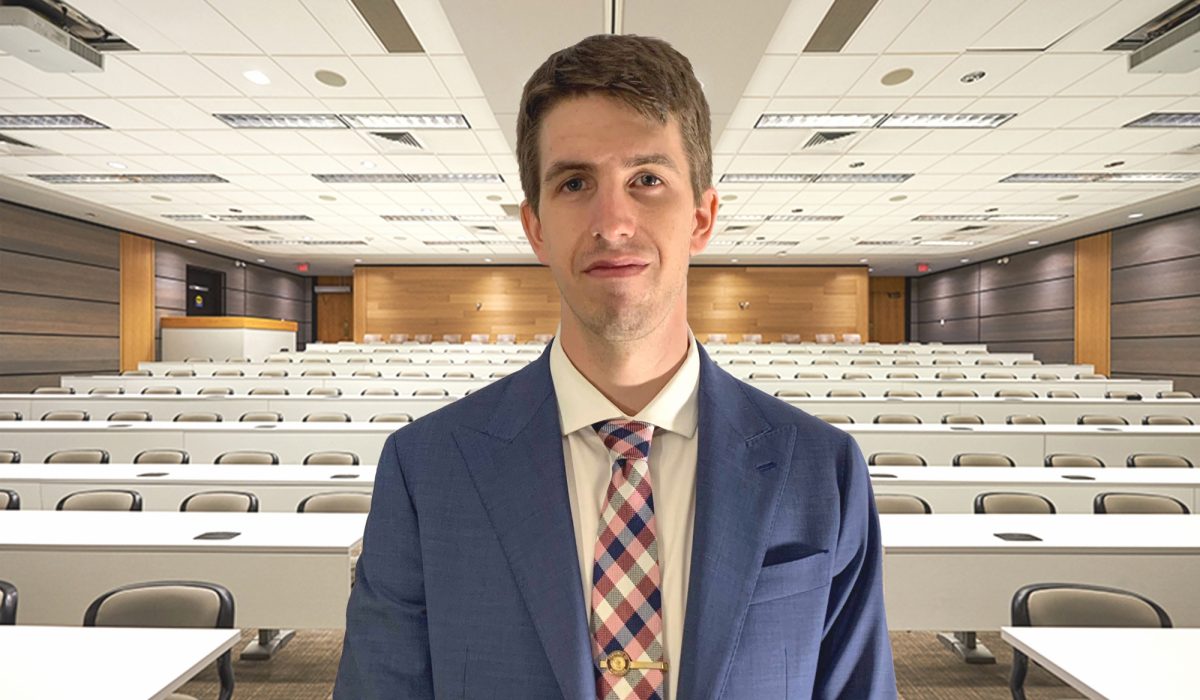
Winning essay came from the heart – and a deep sense of justice
Robson Hall student wins Canadian Bar Association Intellectual Property essay competition
A less-than-perfect mark on a paper doesn’t mean you should give up on the idea, second-year law student Adam Lakusta discovered this year. Despite getting a B on his Issues in Law and Bio Ethics class term paper, hearing a talk from a visiting scholar inspired him to revise the paper and submit it anyway to the Canadian Bar Association Intellectual Property Section’s annual law student essay competition. His essay won.
The paper, titled Reforming Canada’s intellectual property laws: The slow path to reconciliation examines to what extent Canada’s intellectual property (IP) laws protect Indigenous Traditional Knowledge in relation to its international obligations, domestic laws, and compares it with two other nations’ examples. The paper concludes that Canada can do more to further reconciliation with Indigenous people by improving its IP policy and laws to respect their IP rights in their cultural property and Traditional Knowledge.
Lakusta came to Robson Hall from Hay River, Northwest Territories in the fall of 2018 after completing a Master of Science degree at the University of Calgary. Since his family moved to the NWT when he was 10 years old, he’s been fascinated with Indigenous culture. “Whether it was going dogsledding, observing caribou hunting in the tundra, or taking a long canoe trip through the Mackenzie Mountains, I’ve always enjoyed learning about the different aspects of Indigenous cultures,” he said.
In 2019 during a visit from Dr. Tobi Moody, who gave a talk on misappropriation of culture as intellectual property, Lakusta said he really got thinking about the topic. “Before then, I had kind of taken for granted that Indigenous traditional knowledge was adequately protected. Following his talk, I did some research on the topic and found that there were essentially no IP protections for traditional knowledge.”
These ideas followed Lakusta into Dr. Mary Shariff’s Bioethics course, where he initially wrote on the subject of Indigenous rights to resources. “As science advances and our understanding of the natural world grows, all sorts of resources are being found at the molecular level in plants and animals,” he said. “Pharmaceutical companies in particular are taking advantage of these new technologies by finding out the different mechanisms of traditional medicines and then attaining patents for them. All too often, they patent their drugs without providing anything back to the Indigenous people who knew about the remedy for hundreds (if not thousands) of years.”
On learning that there were no known Canadian examples of companies exploiting genetic resources as is done elsewhere in the world, he wrote about other examples of misappropriation of Indigenous traditional knowledge in Canada, such as in the Cowichan Sweater case where both the Hudson’s Bay Company and Ralph Lauren tried to sell mass-produced versions of traditionally knitted sweater designs. He then did a comparative analysis between Canada and similar incidents in other jurisdictions.
Although he got a B on the paper, Lakusta believed he could do better. “I knew I had something with my paper, and I just needed to push myself that little bit extra to turn it into something exceptional. While an A would have been nice, I ended up learning a lot more about myself and the subject of my paper by receiving the grade that I did,” he said.
Currently working as a summer student for the Vancouver office of Canadian Intellectual Property law firm of Smart & Biggar, Lakusta plans to practice in the area of intellectual property upon graduation – but also hopes to continue writing research articles in areas that interest him, including the subject of traditional knowledge.






